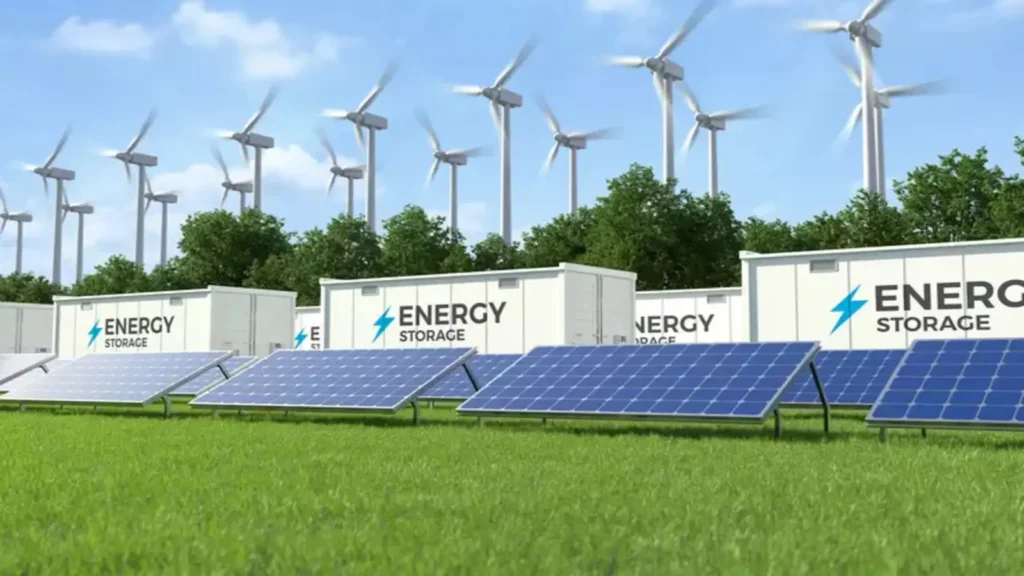The Senate budget bill renewable energy debate took a surprising turn last week, leaving climate advocates and clean energy supporters deeply concerned. Despite several last-minute amendments, the final version of the bill passed by the Senate poses a serious threat to the growth and support of renewable energy in the United States.
The budget bill, which was meant to fund various national priorities, ended up slashing tax incentives, reducing funding for clean energy projects, and re-routing resources toward traditional energy sectors. For many environmental experts, the bill signals a sharp pivot away from the Biden administration’s earlier commitment to reducing carbon emissions and transitioning the country toward a greener future.
Focus Keyword in Spotlight: Senate Budget Bill Renewable Energy
When the budget proposal was introduced, few predicted that the Senate budget bill renewable energy clause would be at the center of controversy. However, as the bill made its way through committee debates, hearings, and closed-door negotiations, it became clear that the renewable energy sector was in for a tough fight.
The legislation reduces several key tax credits that have historically supported wind, solar, and geothermal energy development. It also reallocates funds previously set aside for clean energy R&D and job training programs, directing them instead to fossil fuel subsidies and infrastructure development.
Last-Minute Changes Offered Little Relief
Lawmakers introduced a series of last-minute revisions in an attempt to soften the blow, but these changes were largely symbolic. While a few provisions for existing renewable projects were extended by one or two years, the overall direction of the bill remains clear: a shift in support away from renewables and toward more conventional energy sources.
Key Changes at the Last Minute Included:
- A one-year extension of the solar investment tax credit.
- Limited funding for rural wind projects.
- Small grants for clean energy job retraining programs.
Despite these additions, clean energy advocates argue they fall far short of what’s needed to meet national climate goals or support a thriving green economy.
What the Bill Means for the Future of Clean Energy
The budget’s approval marks a major policy shift that could slow down the momentum of renewable energy adoption across the country.
Here’s how the bill impacts renewable energy:
- Cuts to Federal Incentives
The production tax credit (PTC) for wind power and the investment tax credit (ITC) for solar are two of the most critical incentives for the clean energy industry. Both were either reduced or shortened in the bill. Without these, investment in new projects could decline sharply. - Funding Reallocation
Over $12 billion that was previously designated for clean energy programs was reallocated to fossil fuel development, including oil and natural gas subsidies. This move drew harsh criticism from environmental groups, who see it as a step backward. - Impact on Green Jobs
Training programs for clean energy jobs, such as solar panel installation and wind turbine maintenance, have seen a 30% funding cut. This could lead to job losses and fewer opportunities in emerging green sectors. - State-Level Projects in Jeopardy
Many state-run renewable energy projects rely heavily on federal support. With reduced funding from the Senate, some projects may be canceled or delayed indefinitely.
Reactions from the Clean Energy Sector

The response from clean energy stakeholders has been swift and overwhelmingly negative.
Abby Hopper, President and CEO of the Solar Energy Industries Association (SEIA), said:
“This bill sends the wrong message to investors and the public. It’s a clear signal that clean energy is no longer a priority.”
Gregory Wetstone, President of the American Council on Renewable Energy (ACORE), added:
“Congress has made a short-sighted decision that will hurt economic growth, environmental progress, and America’s leadership in energy innovation.”
Political Divide on Energy Policy
The Senate budget bill renewable energy debate highlights the ongoing divide between Democrats and Republicans when it comes to energy policy.
- Republicans, who pushed for the reallocation, argue that energy security must come first. They believe supporting domestic fossil fuel production will reduce dependency on foreign energy and create more stable jobs.
- Democrats, particularly progressives, see the bill as a betrayal of the promises made under the Inflation Reduction Act and the Paris Climate Agreement. They argue that clean energy is not only essential for environmental protection but also a growing source of economic opportunity.
Some centrist Democrats sided with Republicans during negotiations, further complicating the political landscape.
Environmental Groups Sound the Alarm
Environmental organizations like the Sierra Club, Greenpeace, and NRDC have condemned the bill. They warn that cutting renewable energy support at a time of escalating climate crises is dangerously irresponsible.
In a joint statement, several organizations said:
“The Senate’s decision to turn its back on clean energy is a slap in the face to future generations. We are witnessing worsening floods, heatwaves, and wildfires, yet lawmakers chose to invest in the very industries driving climate change.”
Public Support for Renewables Remains High
Ironically, the Senate decision runs counter to public opinion. Recent surveys show that more than 70% of Americans support expanding renewable energy sources like wind and solar. Many see these technologies not just as environmentally friendly but also as sources of affordable energy and high-paying jobs.
With the disconnect between public sentiment and government action growing, climate activists are calling for increased civic engagement and stronger local-level policies to fill the gap.
What’s Next for Renewable Energy?
Despite the setback, the renewable energy movement is not dead. Far from it.
Possible Paths Forward:
- State Governments: States like California, New York, and Colorado have pledged to continue aggressive clean energy expansion, regardless of federal policy changes.
- Private Sector Innovation: Major corporations including Google, Amazon, and Microsoft have committed to 100% renewable energy use, driving innovation and investment even without government incentives.
- Legal Challenges: Some environmental groups are considering legal actions to challenge the budget’s redistribution of climate funds, especially if it violates previously set targets.
Conclusion: A Step Backward, But Not the End
The Senate budget bill renewable energy impact is undeniable. It weakens federal support at a time when bold action is needed. However, history has shown that progress is often nonlinear. This may be a temporary setback — one that energizes advocates to push even harder for a greener, cleaner, and more sustainable future.
In the meantime, the clean energy sector must adapt, innovate, and look to state-level leadership and private enterprise to keep the momentum alive. Because in the fight against climate change, standing still is not an option.
Follow us on instagram: USA Glory
Read Next – Senate Makes Key Changes to Controversial GOP Tax Bill





